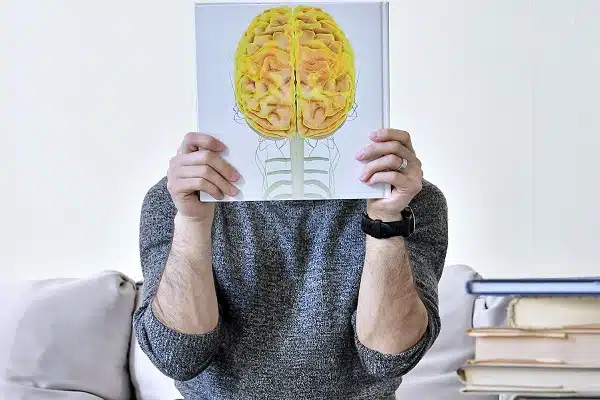
Quick question . . . did you read a book – in whole or in part – in the last year, whether in print, eBook or audiobook?
According to a Pew Research Center survey 2021, only 23% of adults surveyed did. That means 77% were non-book readers. (This statistic was true in 2014 too.) Are we living in post-literate times?
Just as people who don’t exercise can’t do certain things with their bodies, people who don’t read can’t do certain things with their minds.
What happens if we don’t read?
We’re not opening our minds to other ways of looking at things. We devolve into seeing things as black and white; this is oversimplification. For example, George Orwell’s novel, Animal Farm, has characters, the Sheep, who repeat the slogan, “Four legs good, two legs bad.” They simplified things down to its ridiculous essence.
Use it or lose it. Use your “deep reading” brain or lose it.
So what can we do about it?
- Don’t feel pressured to read for long periods. Read for just ten minutes first thing in the morning or last thing at night. Reading is an exercise in mindfulness.
- Read whole books instead of only short-form articles, blogs and posts. Books tend to go deep, with the capacity to transform our thinking.
- Learn to speed read, so you read more at the speed of thought which aids concentration and makes reading more enjoyable.
And on the subject of speed reading training . . . how many words do you see at one time while you read? (It’s not a trick question.)
Answer: probably only one word at a time, would that be right; the word you’re currently reading?
What slows down the average reader is they see only one, maybe a couple of words, at a time with a very narrow focus and that’s called fixation. Did you know that some speed readers can read whole lines at a time? That’s around 10 words at a time.
In the speed reading workshop that we deliver in workplaces around Australia, participants perform specific fast-input eye-brain exercises designed to train their eyes to see multiple words per fixation instead of just one word; to make better use of their peripheral vision. They automatically become a faster reader than they are right now.
The techniques learned shift the reader from seeing words to the brain registering ideas, which boosts reading rate.
Just imagine the increased knowledge, insight and wisdom you gain when you double, triple or better, your reading rate (without loss of comprehension). In fact, you’ll probably also boost concentration and memory. Satisfaction is guaranteed.
Author Mark Twain declared, “Those who do not read good books have no advantage over those who cannot read them.”
Are we in danger of losing our deep reading brain?
For more info about our face-to-face or live online speed reading training, please visit this web page.